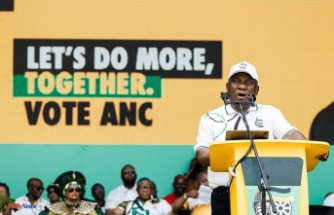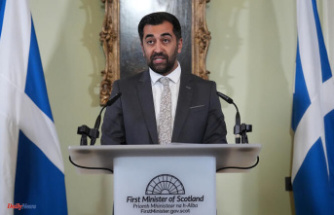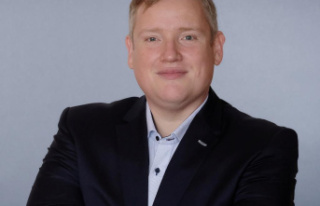The rail boss has ventured to Munich. He didn't have concrete figures on the costs and construction time for the second S-Bahn trunk line with him, but the current forecast is probably not completely wrong. The mayor of Munich is annoyed by something else entirely.
Munich (dpa / lby) - After weeks of silence, Deutsche Bahn has now for the first time admitted an explosion in costs and a year-long delay in the construction of the second S-Bahn trunk line in Munich. Although he is not yet in a position to make final cost and deadline statements, said rail boss Richard Lutz after a top meeting on Wednesday. "But we can certainly say that it will be more expensive and it will take longer." At the beginning of October, Deutsche Bahn will put the facts on the table.
The Bavarian Ministry of Transport is now assuming that the costs for the construction of the second S-Bahn tube across Munich city center are likely to increase from 3.85 billion to up to 7.2 billion euros. In addition, the commissioning could be delayed from 2028 to 2037. "We don't have a completely different view of the world of numbers, neither in terms of dates nor costs," confirmed Lutz after a conversation with Bavaria's Prime Minister Markus Söder (CSU), Munich's Mayor Dieter Reiter (SPD) and district administrators from the Munich area orders of magnitude.
After presenting the facts, Söder also announced that the final decision on financing the additional costs would be made in the autumn, but "without any time pressure". He again rejected a freeze on construction, as this would mean losing three million euros without any equivalent value and, moreover, there was no idea for an alternative solution to the traffic problems in the state capital. There was no "whatever it takes", a blank check, emphasized Söder. The task now is to optimize costs and accelerate processes.
In addition, it was agreed that other projects to improve local public transport in the metropolitan region would be brought forward, Söder reported. A three-digit million amount is planned for investments in the S-Bahn network, Lutz added. In addition, Deutsche Bahn will report to the responsible committees every three months on the current status of the main route.
Munich's Lord Mayor Dieter Reiter (SPD) was only able to appease this a little. "Even today I was not allowed to find out any reasons why it suddenly took nine years longer," he criticized the Deutsche Bahn communication. "You can only find solutions if you know the problem, but we don't know it." In addition, Reiter warned: "It is also clear that every further week without information about the further fate of the main route carries the risk that the political consensus on the subject of the main route and the U9 will crumble."
A few hours earlier, a representative of the railways had spoken to the Munich City Council. The DB Group representative in Bavaria, Klaus-Dieter Josel, also referred to the beginning of October - which caused displeasure in the plenum. The city council was absolutely dissatisfied, said Reiter. Manfred Pretzl from the CSU called it completely unacceptable that the second main route could be delayed for so long. For the people of Munich and the many commuters from the surrounding area, the S-Bahn is the central means of transport, and many other projects also depend fundamentally on the new main line.
Lutz defended the course of action. When the project was decided on in 2019, it was only based on a feasibility study. Since then, the planning status has also been steadily deepened in terms of costs and time frames. Accuracy came before speed. "We then pushed things forward as quickly as possible and as well as possible," said Lutz. In a few weeks you can now put reliable figures on the table.
The result of the top meeting caused harsh criticism from the opposition. "Söder took action too late," complained the transport policy spokesman for the FDP parliamentary group, Sebastian Körber. Better support for the project could have prevented the billion dollar fiasco. Now there is sheer actionism and pure desperation at Söder.
Söder should act instead of lamenting, demanded the SPD parliamentary group leader Florian von Brunn. "His sit-out policy has maneuvered us into the situation we are in today." After all, Söder had known since the end of 2019 at the latest. The parliamentary group leader of the Greens, Ludwig Hartmann, also criticized the long silence. "The state government wanted to push through its prestige project no matter what." Söder simply ignored warnings from the Ministry of Construction.
The chairman of the parliamentary group of the Free Voters, Florian Streibl, raised the question of whether the privatization of Deutsche Bahn was a good idea - "because obviously the private sector can't do it any better than the public sector". Under no circumstances should rural areas lose out in the end.
The regional association of the German Transport Club also warned that the higher financial requirements for the main route should not be at the expense of other railway projects in Bavaria. The general manager of the Chamber of Industry and Commerce for Munich and Upper Bavaria, Manfred Gößl, warned against "talking about the main route": "A traffic collapse would massively damage the attractiveness and future viability of the greater Munich area as a top location for the German economy."












